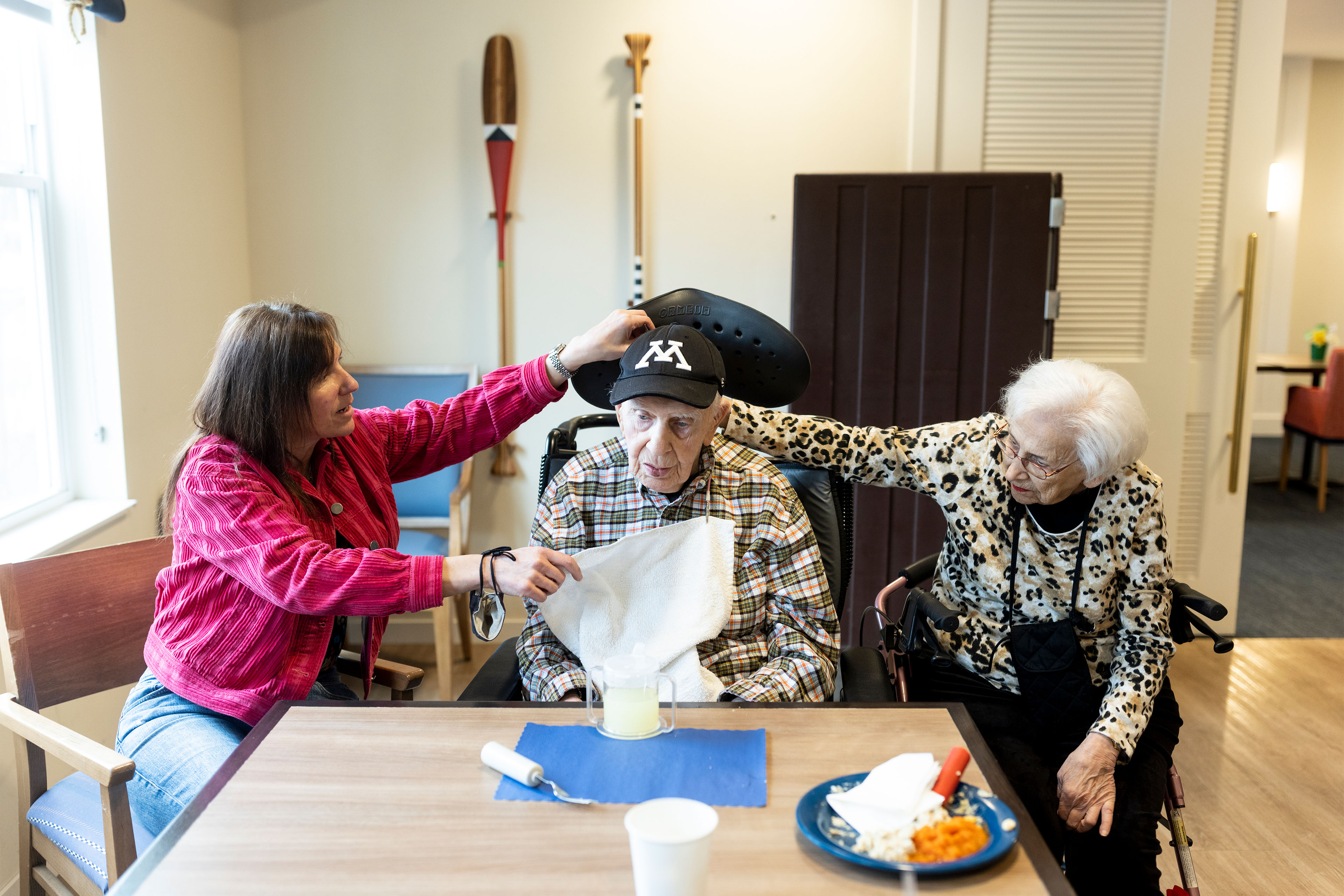Discover the advantages of Assisted Living for aging adults.
Discover the advantages of Assisted Living for aging adults.
Blog Article
The Function of Assisted Staying In Offering Specialized Look After Mental Deterioration Patients
The provision of specialized treatment for mental deterioration clients within assisted living centers is significantly identified as a crucial part of reliable mental deterioration management. These environments are designed to deal with the one-of-a-kind cognitive and psychological obstacles faced by individuals with mental deterioration, using tailored support that advertises safety and security and health.
Comprehending Dementia Treatment Needs
Comprehending the care needs of people with mental deterioration is important for giving efficient support and enhancing their high quality of life. Mental deterioration is a dynamic neurological problem that impacts cognitive features such as memory, thinking, and communication. Individuals with dementia often require support with daily activities, individualized care strategies, and psychological assistance.
Reliable dementia treatment involves recognizing the special challenges faced by each individual. This consists of comprehending the phases of mental deterioration, which can vary from moderate cognitive impairment to innovative stages needing extensive assistance. Care requires may incorporate support in handling daily regimens, medicine adherence, and preserving social communications to protect against isolation.
Additionally, sensory stimulation and acquainted atmospheres can significantly enhance the wellness of people with mental deterioration. Caregivers should be trained to determine behavior modifications and employ methods customized to each individual's preferences and previous experiences. Methods such as validation treatment and memory can help communicate effectively and foster a sense of protection.
Ultimately, successfully resolving the treatment needs of people with dementia calls for a caring approach, continuous training for caretakers, and a dedication to maintaining self-respect and respect throughout the caregiving process.
Advantages of Assisted Living

One more considerable benefit is the risk-free and safe atmosphere these facilities give. Residents gain from features such as secured entries and kept an eye on typical locations, lowering the threat of wandering and boosting general safety and security. Assisted living advertises social communication among citizens, promoting a feeling of neighborhood and belonging. Involving with peers can relieve feelings of isolation, which are usual in those coping with mental deterioration.
Furthermore, numerous assisted living centers use aid with daily tasks, such as drug management, showering, and meal prep work. This support allows citizens to maintain their independence while ensuring their wellness and health are prioritized. Inevitably, assisted living acts as a valuable source, balancing care and autonomy for people with mental deterioration and their families.

Specialized Programs and Tasks
(Dementia Care Charlotte)Acknowledging the special demands of individuals with mental deterioration, many nursing home execute specific programs and activities made to improve cognitive feature and promote general health. These programs often include cognitive excitement tasks that involve homeowners in memory video games, challenges, and memory therapy, which motivates the sharing of individual stories and past experiences.
Additionally, art and songs therapy play substantial duties in cultivating imagination and psychological expression (Memory Care). Involving residents in painting, crafting, or songs sessions can provide healing benefits, helping to decrease anxiousness and enhance mood. Physical tasks, such as gentle exercises and dancing sessions, are additionally vital, as they promote movement and physical health and wellness while motivating social interaction among residents
Structured day-to-day regimens are often established to offer a feeling of security and predictability for people with mental deterioration. These routines can consist of set up dish times, team tasks, and personalized treatment strategies that deal with specific interests and abilities. By producing an enhancing atmosphere filled up with tailored tasks, helped living centers not just boost the quality of life for mental deterioration individuals however also cultivate a feeling of area and belonging.
Educated Staff and Assistance
(Memory Care Charlotte)In helped living centers, the existence of skilled team is important for offering effective support to people with dementia. These specialists have specialized understanding and abilities to address the distinct demands of locals, ensuring their safety and security, convenience, and wellness. Team member receive training in dementia care, that includes understanding the development of the condition, recognizing behavior changes, and using efficient interaction strategies.
Additionally, experienced staff are outfitted to carry out individualized treatment strategies customized per local's preferences and capacities. This personalized approach cultivates a sense of autonomy and dignity, enabling residents to involve in meaningful activities that enhance their lifestyle. The staff additionally play a vital duty in keeping track of health and wellness and wellness, promptly determining any kind of adjustments in condition that might require clinical interest.
In addition to guide care, qualified staff provide psychological assistance to residents, aiding to ease feelings of complication and anxiousness that often go along with dementia. Their caring technique produces a nurturing atmosphere where locals feel valued and recognized - Assisted Living. Ultimately, the know-how and dedication of trained team are important in supplying comprehensive care that meets the complicated requirements of individuals living with mental deterioration in assisted living settings
Family Involvement and Resources
Family participation plays a considerable function in the care of individuals with mental deterioration in assisted living centers. Involving member of the family in the care process not only boosts the psychological well-being of the local but likewise fosters a collective setting where treatment plans can be tailored to private requirements. Family members can give beneficial understandings right into the choices, history, and actions of their enjoyed ones, which can inform caregivers and cause even more individualized care strategies.
Moreover, aided living facilities frequently provide resources for family members, such as assistance groups and educational workshops. These resources can assist family members recognize dementia, boost communication methods, and develop coping systems. Involvement in these programs can empower member of the family, equipping them with the devices essential to sustain their liked ones properly.
Additionally, regular communication in between families and team is critical. This ongoing discussion allows families to remain informed about their enjoyed one's progress and any type of changes in care strategies. Inevitably, a strong partnership between family members and aided living facilities cultivates an atmosphere of depend on and understanding, making certain that view publisher site individuals with dementia get the specialized care they are worthy of while preserving their household connections.
Conclusion
Finally, helped living facilities play an important duty in addressing the one-of-a-kind needs of dementia patients via personalized care and support. By cultivating secure settings, promoting social communication, and carrying out structured regimens, these centers boost the general well-being of locals. The involvement of skilled personnel and households further enriches the treatment experience, making sure that individual preferences and histories are appreciated. Inevitably, assisted living offers important resources that significantly boost the lifestyle for those coping with dementia.
Report this page